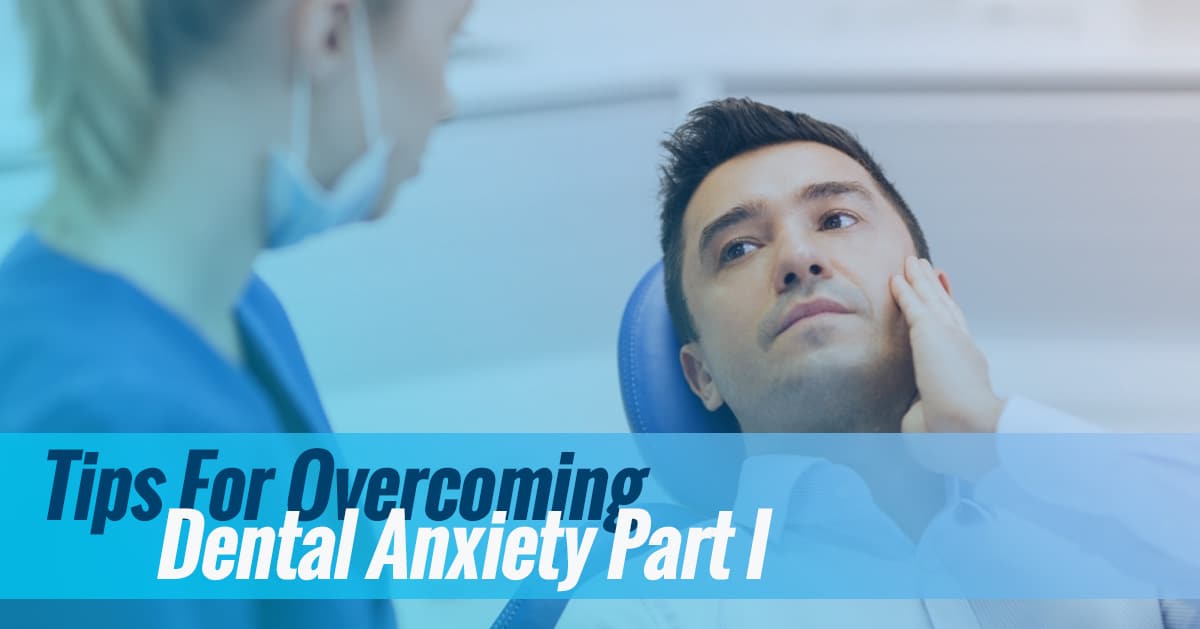You. Your Health. Your Confidence

Tips For Overcoming Dental Anxiety Part I
September 5, 2018
Odontophobia (or dentophobia) is the fear of going to the dentist. It might seem like odontophobia is something from which only children suffer, but it’s actually significant in adult populations as well.
Indeed, according to Peter Milgrom, director of the Dental Fears Research Clinic at the University of Washington in Seattle, an estimated 5 to 8 percent of Americans completely avoid the dentist out of fear. Additionally, nearly 20 percent of individuals experience enough odontophobia to reduce their dental visits to only the absolutely necessary.
At First Hill Dental Center in Seattle, we understand first-hand the anxiety that going to the dentist can induce. Instead of dismissing this fear, we instead want to provide you with information about odontophobia and strategies to mitigate dental anxiety.
After all, scheduling routine dental exams isn’t just imperative to dental health — it’s a staple of holistic health. Learn to manage your dental anxiety today to avoid more severe dental issues down the road.
What Is the Root of Dentophobia?
Like most phobias, dentophobia has multiple causes. While some patients experienced a traumatic dental experience at a young age, others might have general anxiety or hypersensitivity that make treatments uncomfortable.
Common reasons adults avoid the dentist include:
- Anxiety about pain — perhaps the most common cause of dentophobia, fear of potential pain stops many people from seeking the treatment they need. Maybe it’s from an old movie that shows a wisdom tooth extraction without anesthesia, or maybe it’s the sensitivity of the mouth in general. Luckily, dentistry has come a long way since the age of Ether and cavity “drilling.”
- Anxiety about injections — adults also don’t like needles. The thought of needing an injection overwhelms rational thought, and this alone can be enough to avoid going to the dentist.
- Anxiety about anesthesia not working — this is a common fear with any medical treatment, but people think of worst-case scenarios of a local anesthetic not working. They envision a dentist drilling right into a nerve. To prevent this scenario, dentists wait until the anesthesia has had enough time to kick in and create a sign for the patient to signal if they feel pain. The dentist might have you lift your right arm, for example, if you still feel sensation.
- Loss of control — there’s just something about sitting in a chair not being able to speak that really peaks people’s anxiety. It’s important to have a trusting relationship with your dentist to avoid this sensation.
- Loss of personal space — with the mouth especially, it can feel really invasive when someone is poking around. Again, this is where a trusting relationship with a top rated dentist comes into play.
We mentioned these common causes because it’s sometimes helpful to pinpoint the source of fear. If you know that you are afraid of needles, you can explicitly communicate this fear to your dentist and they can take proper steps to ease your anxiety.
Tips For Reducing Dentophobia
There’s good news when it comes to dentophobia — there are many solutions to help you overcome the fear or at least manage it to the point of seeking treatment.
In Part I of this series, we’ll cover solutions that a dentist can use. When you decide to find a dental office, make sure you find one that offers this sort of compassionate care.
In general, you want to find a dentist whom you can trust and who explicitly communicates with you throughout the procedure. You want a dentist who gives you control of the situation, so that you don’t feel like you’re helpless or out of control.
Examples of this behavior include:
- A dentist who explains exactly what to expect from the treatment, how long it will take, and what you might feel. You want a dentist who has a gentle chair-side manner as they explain the treatment.
- A dentist who asks for consent to start and continue a procedure
- A dentist who creates a cue for you to use if you start to feel uncomfortable or in pain.
- A dentist who takes his or her time and stops for breaks as requested
The team at First Hill Dental Center in Seattle follows this protocol with all patients, and especially ones who have anxiety about the dentist. It’s our goal to make you feel as comfortable, informed, and in control as possible.
To visit a dentist in Seattle that understands dental anxiety and goes above and beyond to mitigate it, contact us today!

